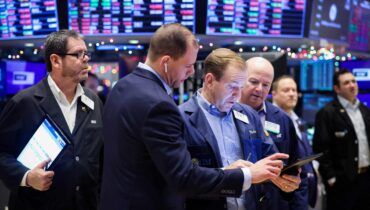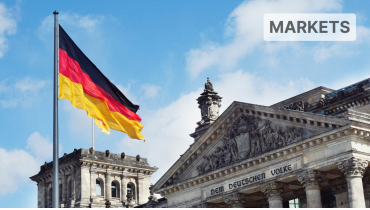In September, the US labor market performed surprisingly well, with significantly more new jobs created than expected. This has pushed back concerns about an impending recession, which is positive for the financial markets. Was the strong labor market report just an outlier, or is the US Federal Reserve perhaps on the right track to achieving the hoped-for “soft landing”?
Article on tag "economy"
Risk of recession in Europe? Labor market data under the microscope
In recent weeks, there has been much discussion about the so-called Sahm Rule – a usually quite reliable recession indicator in the US that was triggered in August for the first time since the coronavirus crisis. There is no corresponding indicator for Europe so far, which raises the question: What is the risk of recession with regard to the European labor market?
Eastern Europe: Economies expected to outperform Euro Area
Weakening growth in the eurozone has been an issue on the markets for some time now. In the Central and Eastern European countries, however, this is largely a non-issue. According to forecasts, the region is also likely to grow faster than the eurozone this year. Private consumption in particular has recently proved to be a growth driver. However, the tense situation in German industry is causing concern.
Economic outlook: soft landing with risks attached
On the stock markets, the focus is shifting back to the downside risks. Nevertheless, there are still hopes that inflation will gradually fall and that there will be no recession. But how realistic are the hopes for this “soft landing” of the economy and how can investors position themselves in the current environment?
Market update: Economists see Germany economy regaining momentum
In football, things have been going well for the European Championship host country Germany recently with its place in the round of 16, but the economy has been in the doldrums in recent quarters. According to leading economists, this could now change. Positive signals from industry and private consumption indicate that the German economy is regaining momentum.
Favorable indicators: Soft landing on approach?
More and more indicators are pointing to good global growth. Even regions and sectors that had recently weakened are likely to return to growth. The soft landing after the sharp rise in inflation and the turnaround in interest rates could succeed. The decline in inflation is pausing at the same time, as yesterday’s US inflation data shows.
More Optimistic Outlook for German Economy among Experts
Stock market professionals are less pessimistic about the prospects for the German economy in the next six months. This is shown by the current economic barometer of the Center for European Economic Research (ZEW). The government also wants to get the economy moving again with additional relief measures.
What are the lasting results of the central bank meeting in Jackson Hole?
At the annual meeting of central bankers in Jackson Hole Federal Reserve Chair, Jerome Powell, summed up the uncertain environment as “navigating by the stars in a cloudy sky”. This relates, among other things, to the uncertainty about the level of the neutral interest rate, the lagged effect of key-lending rate hikes on economic growth and inflation, and the drivers of inflation.
Germany slides into technical recession: What does that mean?
The German economy slipped into a technical recession in the first quarter. What does this mean for the largest economy in the euro zone and what is a technical recession?

Conditionally positive economic news
Last week, positive economic data brought back some confidence. The global purchasing managers’ index, one of the most important survey-based economic reports, rose for the third time in a row. On the other hand, the latest inflation reports dampen hopes of a rapid decline in inflation without additional key rate hikes.








